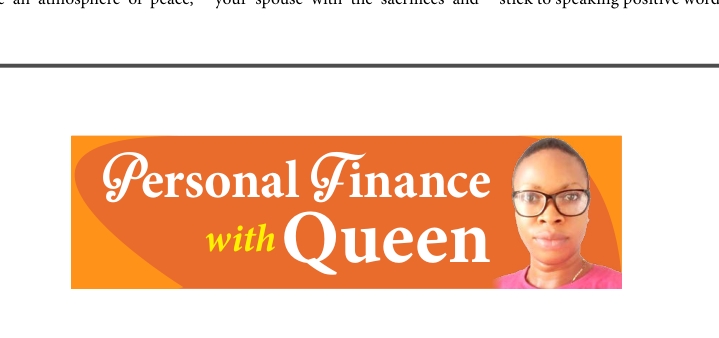Last Saturday, the National Bureau of Statistics (NBS) released the latest data on inflation showing that Nigeria’s inflation rate increased to 33.95 per cent in May 2024, from 33.69 per cent recorded in the previous month of April. What does this mean? How does it affect personal finance?
Inflation, simply put, refers to the general increase in prices of goods and services over time, leading to a decrease in the purchasing power of money.
To further break it down, let us take a trip to your neighbourhood market. Let us begin with the basic items. Garri. In March/April this year, a paint rubber (4-litre cylindrical container) measure of garri was sold for N1,500. Today, the price is between N3,500 and N4,000. What of beans? In Benin City, the measure for beans, which they also call rubber, is half of the paint rubber, that’s 2 litres. That 2-litre measure has moved from an average of N3,000 to about N6,000 depending on the variety of beans. Between October 2023 and now, the price of a bag of rice has increased from about N56,000 to over N85,000. In the past few weeks everybody has been lamenting about the cost of tomato and pepper. Think of meat, fish, crayfish, or even vegetables that grow in our backyard.
Now let’s say you earn N150,000 a month and out of that you were spending N70,000 on feeding, N50,000 on other needs, and saving N30,000, the way things are today, you will agree that if care is not taken, the entire N150,000 may not be able to feed you in a month because your purchasing power has reduced. If this happens, where then will you get the resources to take care of other needs, not to talk of saving? In that way, inflation has made it difficult, if not impossible, for you to achieve your financial goal.
This is one of the most significant impacts of inflation on personal finance. Money loses its purchasing power as prices of products and services rise, meaning that what N10,000 could buy yesterday, that same amount may not be able to buy half of it today.
Wage stagnation is also a possible consequence of inflation. Salary earners understand this very well, which is why the labour unions have been demanding higher wages for Nigerian workers. How do salary earners survive the onslaught of rising prices of everything around them when the salary has remained the same? Imagine N30,000 minimum wage in this economy, with mouths to feed, house rent, school fees, electricity bill, hospital bill, and sundry issues!
On a wider scope, inflation also has impact on investments, particularly those with fixed returns such as bonds. As the cost of goods and services increase over time, the value of the fixed return on these investment declines. For instance, if one invests $1,000 in a bond that pays a fixed interest rate of 3 per cent, if inflation is running at 2 per cent, the real return on the investment is only 1 percent, according to an article by wfla.com.
The impact of inflation on investment can vary depending on the asset class. Stock, for example, can offer a degree of protection against inflation as the earnings of companies can increase with rising prices. However, stocks are not immune to the effects of inflation, and rising prices can lead to increased production costs, reduced profit margins, and decreased stock prices.
The rise on inflation also translates to a rise in interest rates and borrowing costs. People who have loans and mortgages may be impacted since they may have to pay higher interest rates on their debt. This may also make it more challenging for people to repay loans, thereby making financial institutions reluctant to give loan during high inflation periods.
While individuals cannot directly control inflation, there are steps they can take to mitigate its impact on personal finances.
The first counsel is to examine and modify your budget from time to time to take into account changes in the prices of products and services. The essence of this is to prioritize spending and make sure you are not going overboard in the areas of rising costs. Eliminate what can be eliminated, cut down what can be cut down without too much pain. Focus on essential expenses and avoid unnecessary purchase. Negotiate prices where it is possible until you can get the best possible price.
The other thing is to find ways to increase your income. Virtually everyone I know today is doing a side gig to augment whatever they earn from their regular job. Of course, earning more does not cure inflation but it at least helps you to be able to afford more of your needs in the midst of rising prices. Find that thing that you can do by the side and earn some money from it.
To mitigate the impact of inflation on investment, experts in the field advise that investors should consider investment options that offer returns that can withstand inflation rate, such as real estate. These investments can help people preserve their buying power over time and may offer better returns than conventional savings account.
Experts also advise that individuals should minimize debt or avoid it completely. By so doing, they reduce exposure to inflation risk and improve financial flexibility.
Inflation is a crucial economic indicator that has a big influence on household finances. People who are aware of how inflation could impact their finance are better able to manage their money and take precautions against its damaging impacts. Above all, stay updated on economic trends, inflation rates, and government policies that may affect personal finances. This knowledge can help individuals make informed decisions and adjust their financial strategies accordingly.
The economy is not smiling. You need all the tricks in the bag to survive it.
A lovely weekend.
Queen, a personal finance advisor, can be reached via [email protected].


